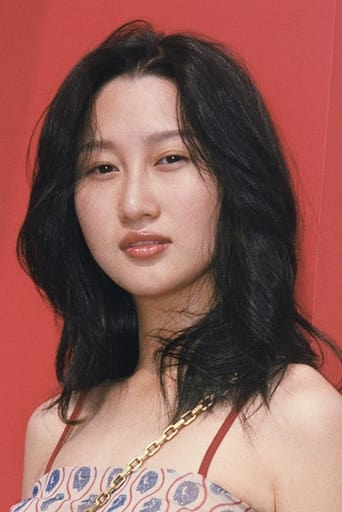Alicia
I love this movie so much
Listonixio
Fresh and Exciting
Pacionsbo
Absolutely Fantastic
Zlatica
One of the worst ways to make a cult movie is to set out to make a cult movie.
Martin Bradley
If Yuan Zhang's "Little Red Flowers" isn't quite in the same class as Nicolas Philibert's masterpiece "Etre et avoir" it is still one of the best films ever made about small children in a school environment but whereas the Philibert film was a documentary this is fiction and at times the performances or 'non-performances' Zhang draws from the children are nothing short of miraculous. The setting is a boarding kindergarten in post-Revolutionary China and the central character is Fang Qiangqiang, a disruptive four year old desperate to fit in.There's no real plot to speak of and Zhang films it as if it were a documentary with perhaps more of an emphasis on the children's toiletry habits than some people might like. Although the film is perfectly innocent and full of charm, repetitive shots of our little hero and his friends in the altogether could prove problematic to Western audiences. (The Chinese, or is it just Zhang, seem obsessed with peeing, pooping and farting). Look beyond that, however, and this is a lovely account of one little boy's need for acceptance. The title refers to the little red flowers the children are rewarded for good behavior.
johnnyboyz
Little Red Flowers is rather-a bright and breezy film on the surface, a film coated with a light and somewhat fluffy exterior about a young boy's mishaps at school and rather quaint friendship he strikes up with another girl that overall masks what rather disturbing substance lies beneath; a film featuring young children looking cute and doing all manner of rather childish things which we may find quite sweet but much more importantly exploring ideas of power, control and the reactions those go through when exposed to these items. Chinese director Yuan Zhang distills, through very young children occupying a live-in nursery, a human-being's reaction to imperialistic and strict attitudes towards life and functioning which lead's to many seemingly happily abiding but one overtly reacting to the taking away of their freedom and their choice as to whether or not to live under the inferred state's imposed sanctions. The film is on one level a whimsical enough comedy about a child fumbling and bumbling their way through a locale with others his age whom get in on the act far quicker than he does, deeper still it is a quite frightening plight of one person's struggle against overwhelming odds which will eventually lead to attempted revolution and proposed violence when the way of living isn't inclined enough towards one's own choice.The film begins with the lead, a four year old Fang Qiangqiang played by child actor Bowen Dong, in the process of being delivered to a boarding nursery school for both genders by his father in late-1940's China. The father is kept anonymous, cut off from around the knees upwards leaving the audience solely to be able to focus on that of both the disillusioned Fang and the headteacher Miss Li (Rui). Fang is very much an outcast to this play school nursery zone, the other children have already long since been moulded into a unit of kids whom go along with the teachers' wishes and do what they're told. The film enjoys its mise-en-scene of a somewhat militarian nature at the school, the trooping around of the playground by the teachers echoing the activity to that of guards at a kind of establishment as well as the sleeping quarters of the children shrouded together as if in an army barracks, It is a place Fang is delivered to in the middle of winter, the climbing-frames and roundabouts lying dormant and forlorn outside as they sit there drenched in heavy snow. Inside, regimental set ups dominate the way of operation with rewards distributed by the establishment in the form of the titular little red flowers as children go through with the basic life-skills more inclined towards the hygiene required in life.Fang is initially unable to compete; he's left there to cry an awful lot, appears in different clothing to that of the others and dislikes both the regime and system. At first it's inclined it may be down to home-sickness, but as things transpire the consequent reactions to the school's set up infer that it is fear and sadness born out of how things are run. There is a wide shot during his tenure as the cygnet amidst the swans which encompasses the sheer menagerie of other youngsters within the locale encapsulating his alienation, as he is greeted into the imminent scenario by a sternly face teacher and then forced into changing into his day clothes, despite knowledge all round that he is unable to do so, in front of everybody. There is a temptation to read Little Red Flowers on an initial level linked more broadly to that of it being a straight forward depiction of a school for children doing what they're told since, how else are they supposed to live? On another level, the film's clear distinction between ruler and ruled twinned with the fact it has been produced by a nation no-less than China along with the fact director Zhang strikes me, from reading of his past-work, to be a too accomplished-a filmmaker to produce a straight up film depicting such a scenario without allegory.One of the starker moments in his film actually occurs outside of the boarding kindergarten, a short walk around local sites or what-not resulting in the children venturing past a small squad of Chinese soldiers out and about going through drills for whatever purpose; the placing of them in the background as our children occupy the foreground effectively competing in the same action foreshadowing generational jumps from regimental circumstances unto further ways of living of similar distinction. While there is nothing particularly sordid or necessarily evil about the school, exemplified in a song it has everybody sing about the sharing of an apple and upholding positive characteristics, it is a rather engaging look into how a working system of such an assimilated nature can affect those of which are processed through it; more broadly, how imagery and particular methods in bringing somebody up or bringing somebody around to be of a particular 'type' can have ill affects on those undergoing said process, the majority of it culminating in a really smartly played drama tackling some interesting themes.
kjruk
I just watched this film on UK TV. I wasn't sure what to make of it at first but it did capture my attention - not least because I'm not familiar with the setting in a Mao generation kindergarten boarding school. I've no idea if any of the details are factual but it reminded me of a rather Dickensian idea of bringing up children - though kinder and more humane.This is a "foreign film" and therefore there are no car chases, no murders and no serial killers. It's about real human beings - infants in this case. If anyone is upset about seeing little kids bottoms it's because you have had your mind poisoned by Anglo-Saxon attitudes and obsession with pedophiles. Obviously you must never have been around infants - toilet training is a big part of the day! Infants are basically sweet and innocent and these kids are mostly seen in that way. The approach in this film is affectionate and realistic - kids also have their evil little ways! I think the core message is that there is not much difference between the children's Kindergarten school routines and the adult society in Mao's China. The attitudes of the children will harden in the controlled society that exists outside when the games become real. The teachers, the educators will be replaced by other kinds of educators and wrong behaviour will be punished by re-education.When you watch the last 5 minutes you will see why I came to that conclusion (could be wrong!). Natural instincts become perverted by too much control. People are so regimented that they even have to poo and pee at he same time in a line in the same place!Something like that.You have a delightful journey getting to that point. As stated elsewhere the children's performances are completely believable. Of course, it is fiction and some dramatic license is taken in regard to the freedom of movement the little boy protagonist has.
Kristoffer Kristoffersen
****Contain Minor Spoilers**** In my option a good movie, it portrayed several kids journey trough a camp of children. The movie did a good job describing the feelings of the kids, one could almost feel how long i must have felt for them.Also there was several scenes where it was hard to tell dream from reality, like the mind of a child. The end of the movie was the most unexpected i have seen in a long time. Bam. Credits.There is a scene where one of the parents come to pick up one of the child's, he is a important man, when he sees that his son has not been given as many points as he expected the personal of the camp adds some flowers and says something like: Oh, we have not give him the flowers yet. They do really try.If you like children's play and a movie without the classical drama. Little Red Flowers is for the win.


